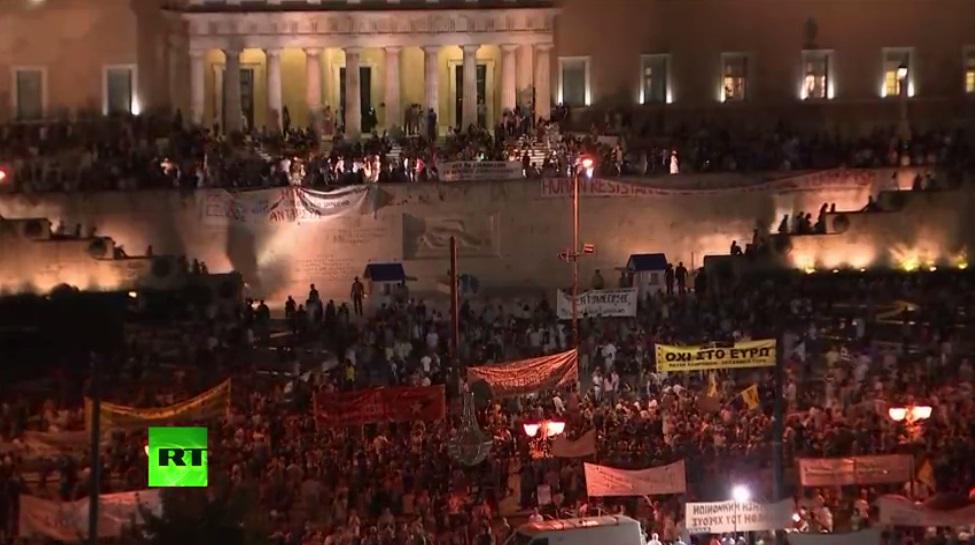 USA Today reports this morning: “Global stocks lurched lower Monday as Greece closed its banks and imposed restrictions on cash withdrawals to try to prevent a deepening financial crisis from worsening amid faltering bailout talks with its international creditors.”
USA Today reports this morning: “Global stocks lurched lower Monday as Greece closed its banks and imposed restrictions on cash withdrawals to try to prevent a deepening financial crisis from worsening amid faltering bailout talks with its international creditors.”
COSTAS PANAYOTAKIS, panayotakis at gmail.com
Panayotakis is associate professor of sociology at the New York City College of Technology of the City University of New York and author of Remaking Scarcity: From Capitalist Inefficiency to Economic Democracy. He has been published in numerous journals including Monthly Review and Capitalism Nature Socialism.
He said today: “Since its election in January the Greek government has, in its attempt to reach an agreement, made many concessions to the eurozone’s austerity agenda. The fact that, in the course of the negotiation, Greece’s European partners always asked for more suggests that they may not have truly desired an agreement, instead preferring to squash the only European government with the audacity to openly criticize the neoliberal consensus. The European response to the Greek prime minister’s announcement of a referendum also displays the long-standing aversion of European economic and political elites to democratic processes that allow European people to have a say over the future of the European project.
“Although European elites have usually found a way to shrug off any referendum results they didn’t like, doing so doesn’t look good, since it undercuts the founding myth of European unification, namely the idea that the European project signifies the transition of European societies from a dark past of totalitarianism to a bright future of stable and robust democracy. Such a future is nowhere to be seen as Keynesian policies are, in effect, banned within the Eurozone and as the European institutions and the IMF are attempting to repeat the scenario that played out back in 2011, when the announced popular referendum by then-prime minister George Papandreou was aborted under pressure from German chancellor Merkel and then French president Sarkozy. The political and economic fallout, both in Greece and internationally, of Greek capital controls will determine whether the referendum does take place as planned. A resounding ‘No’ to the European proposal would face the Europeans with the dilemma of either risking the rupture of the Eurozone or negotiating in good faith with the Greek government.”